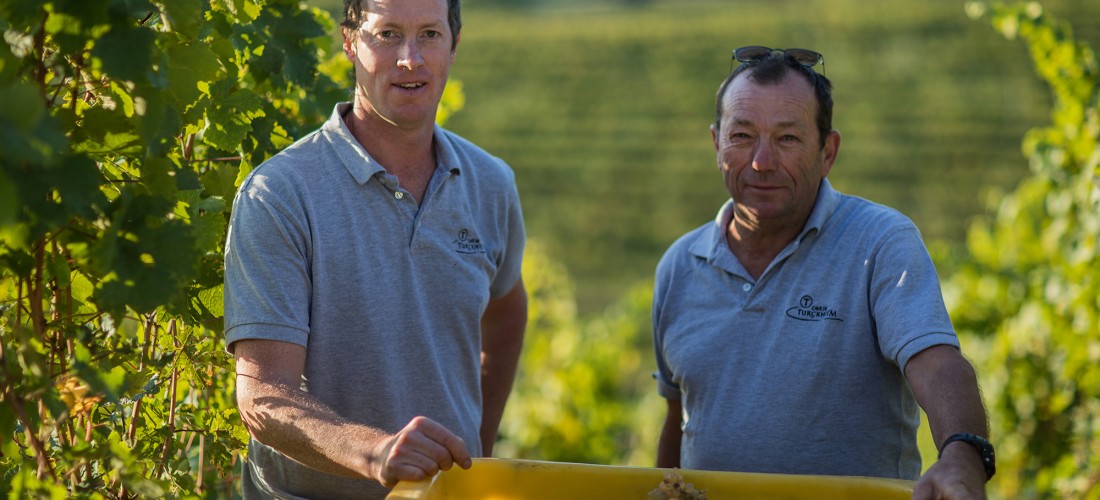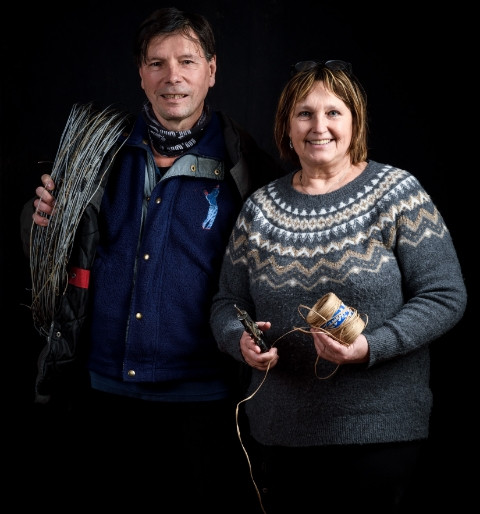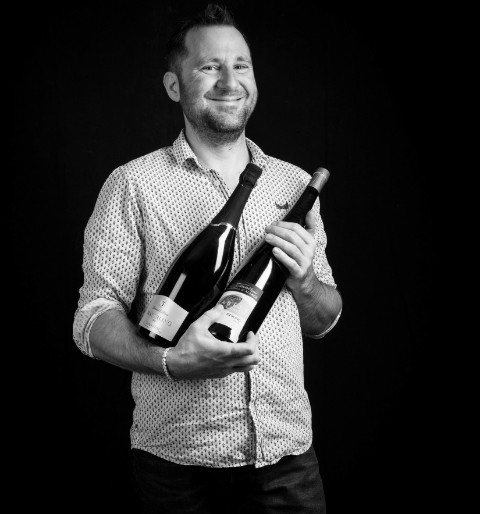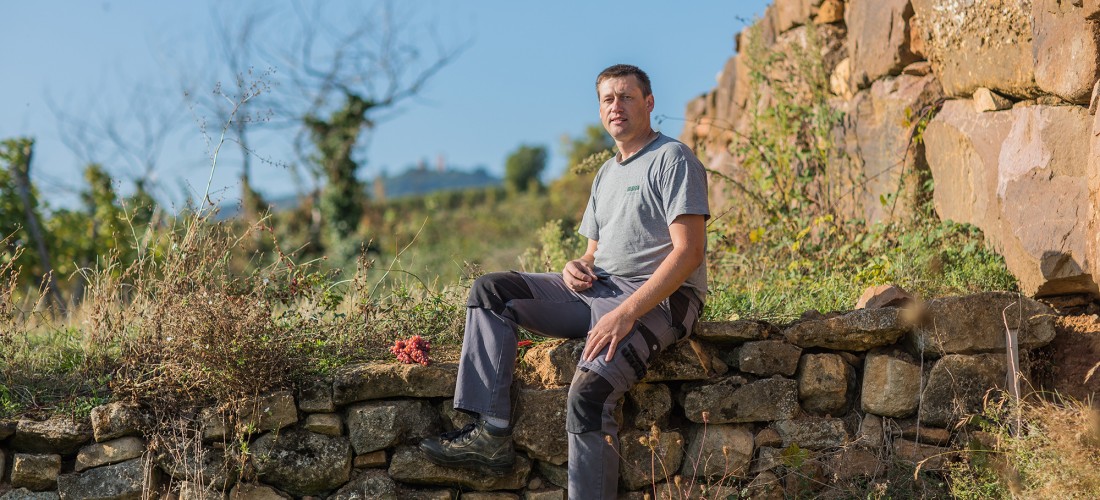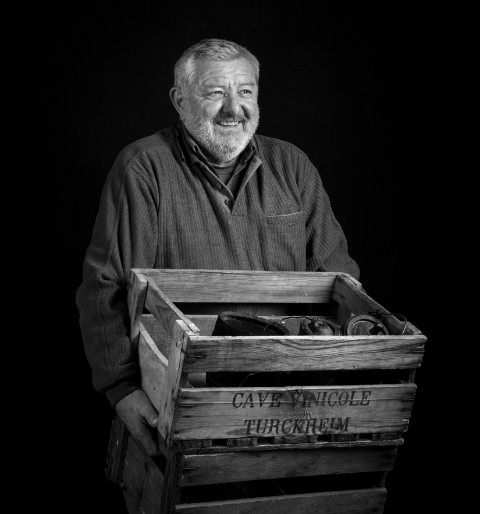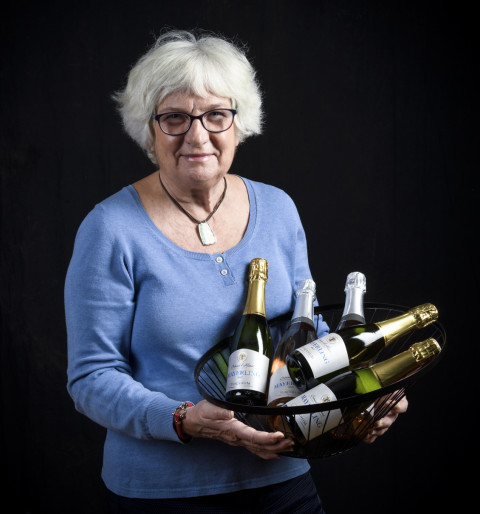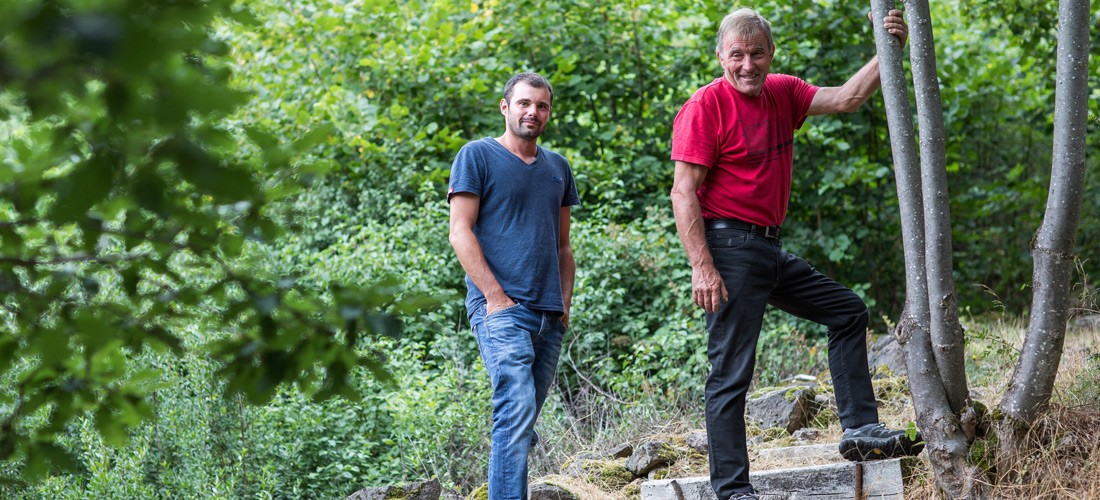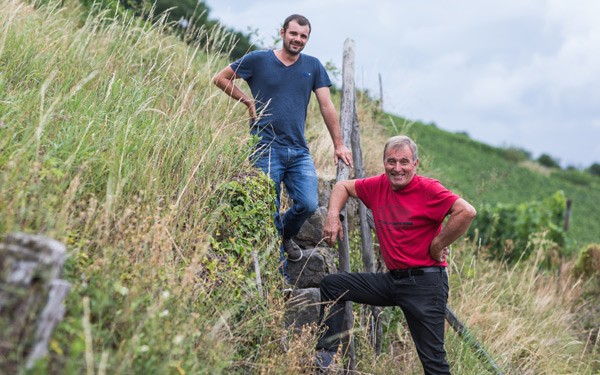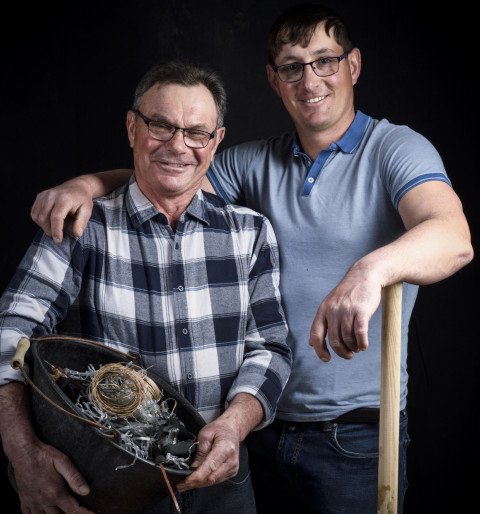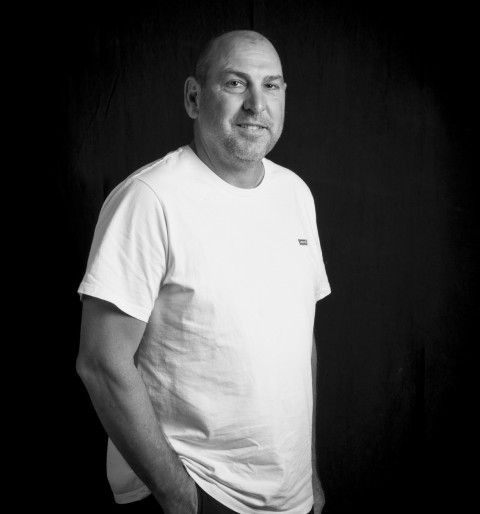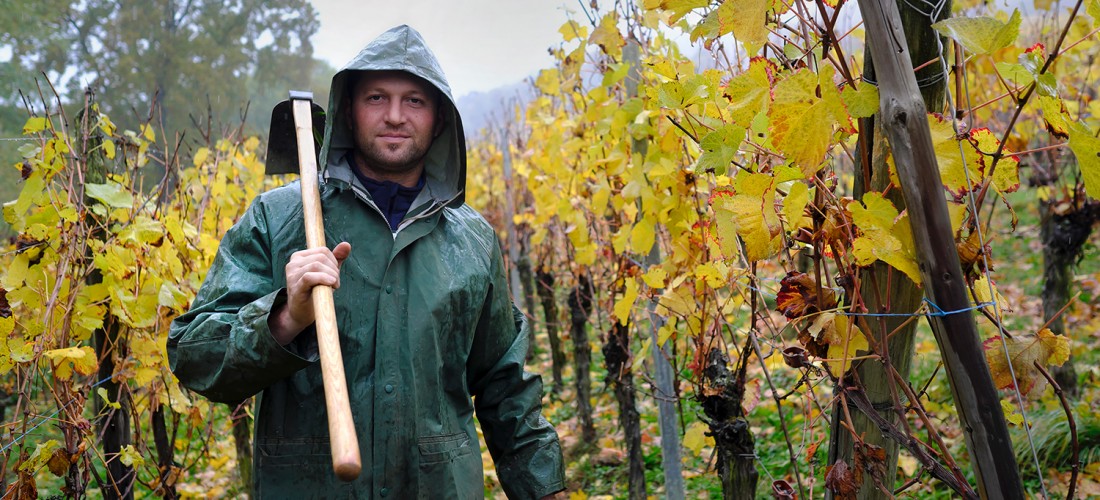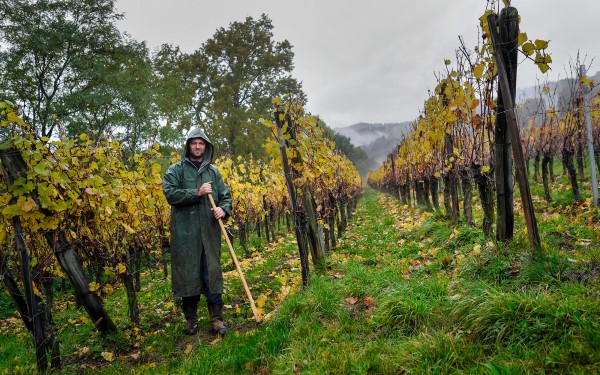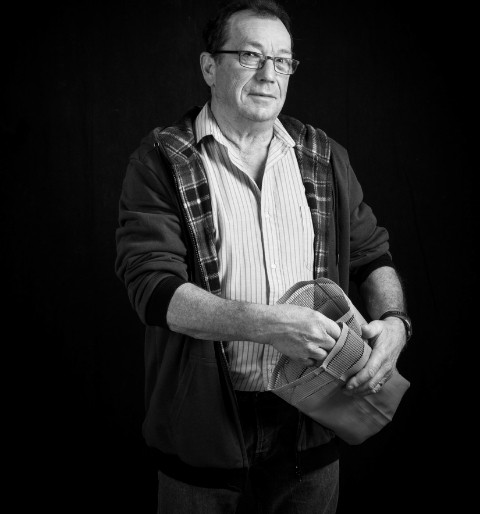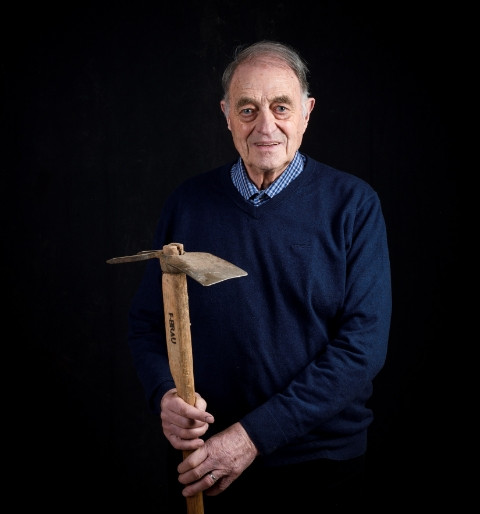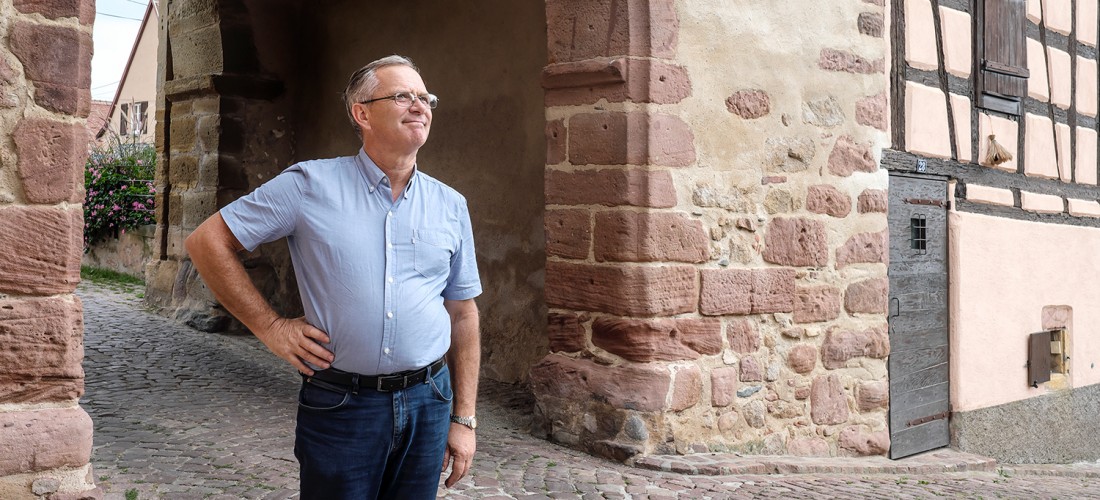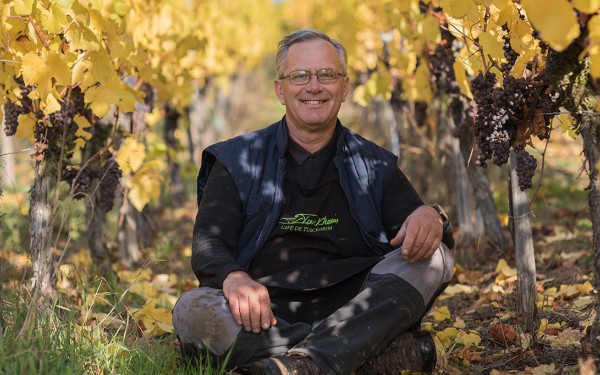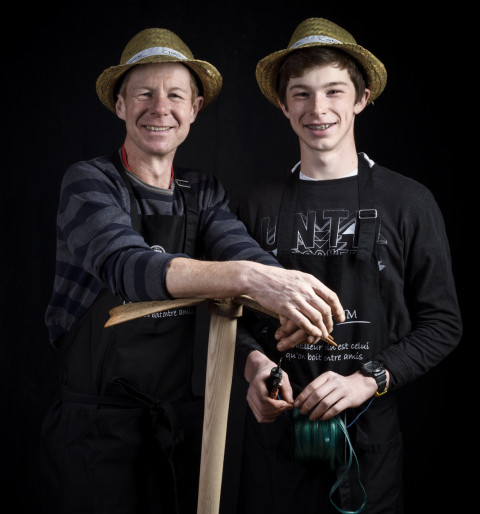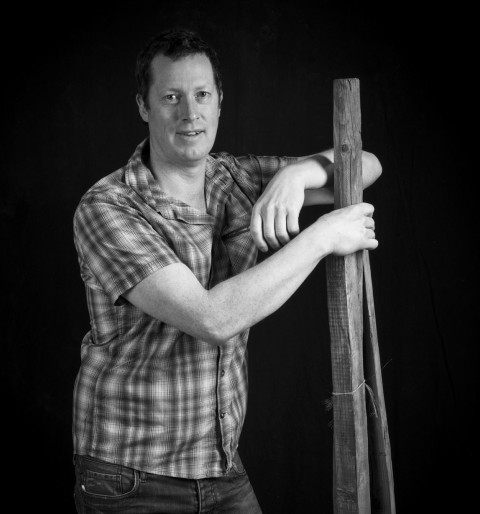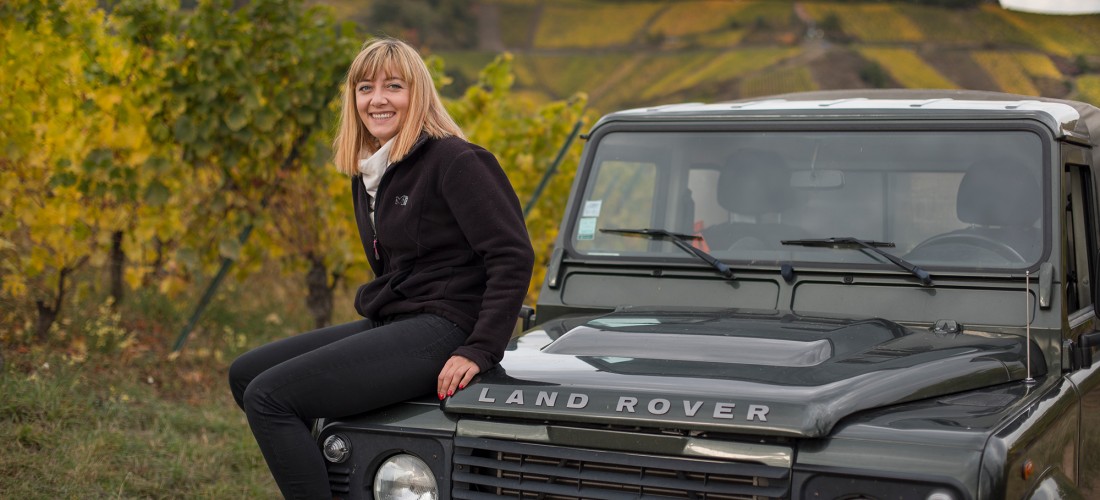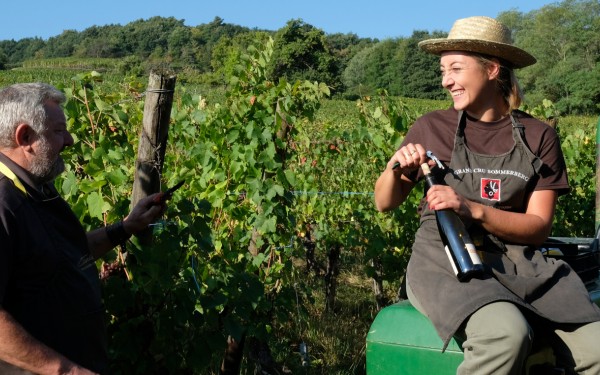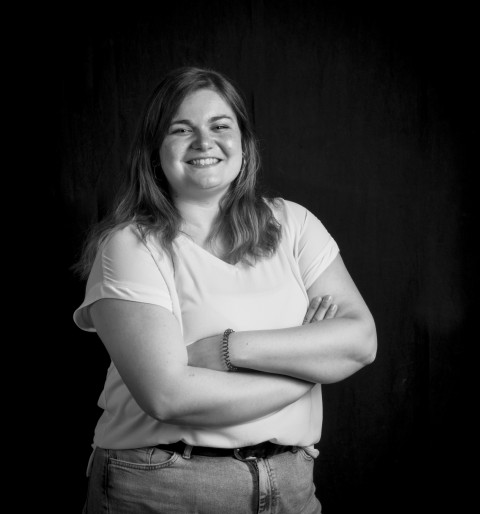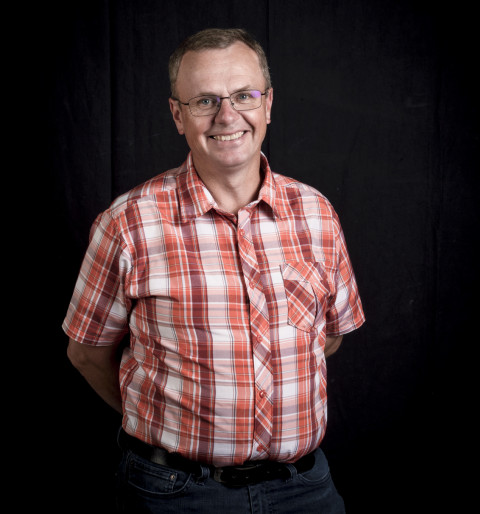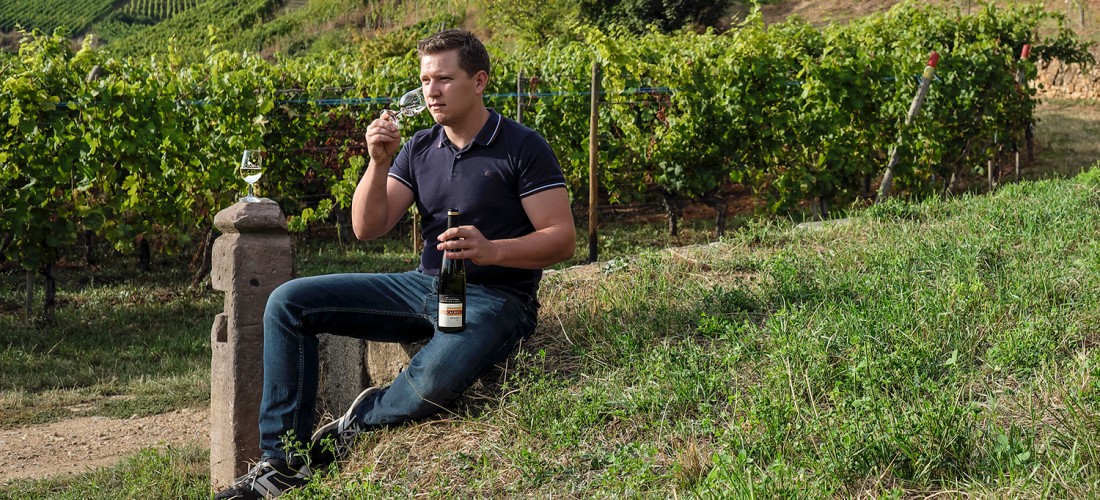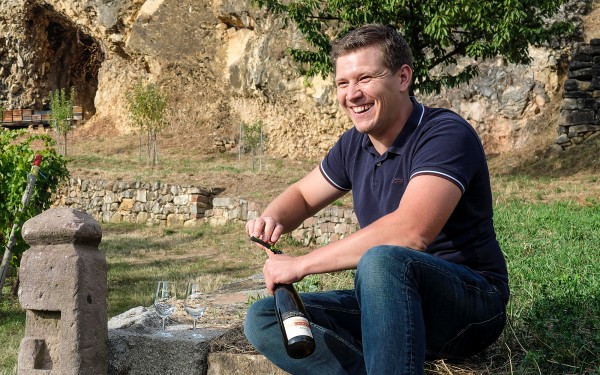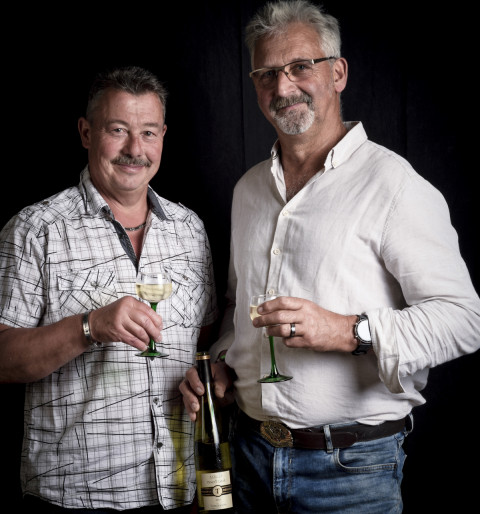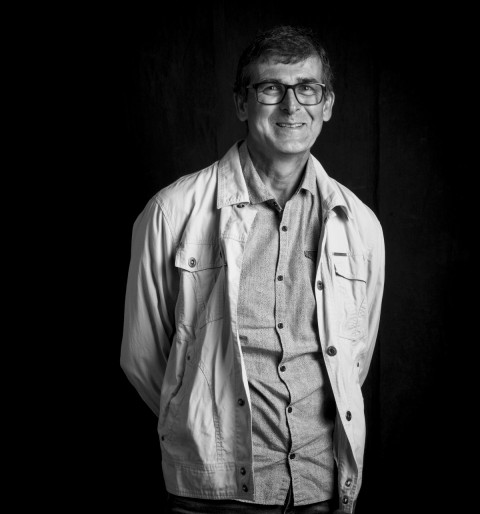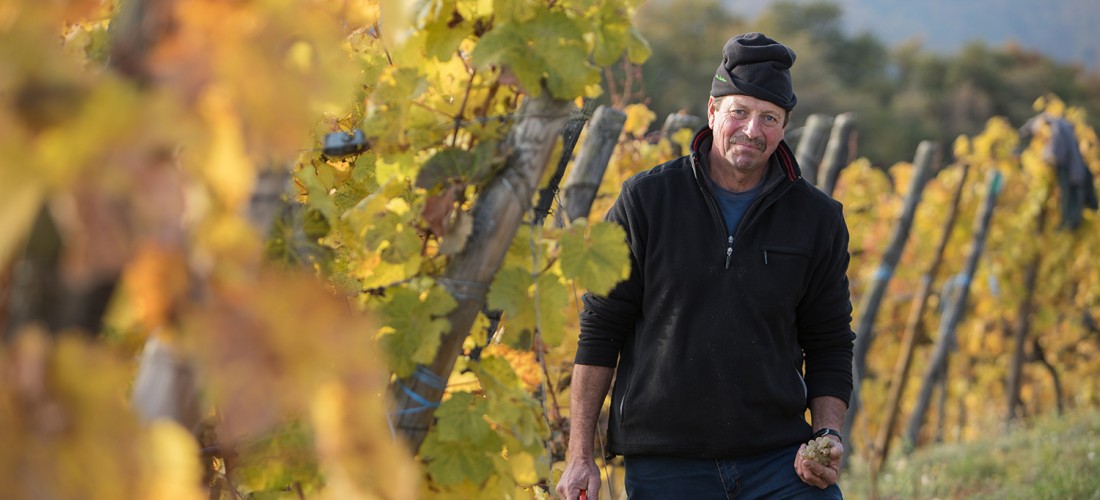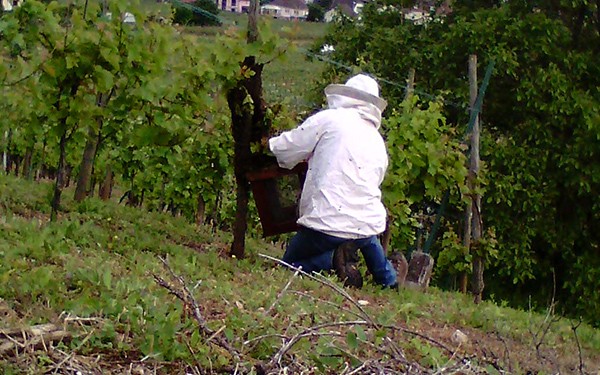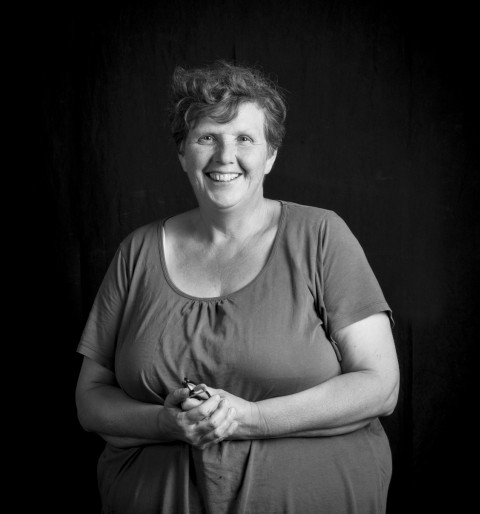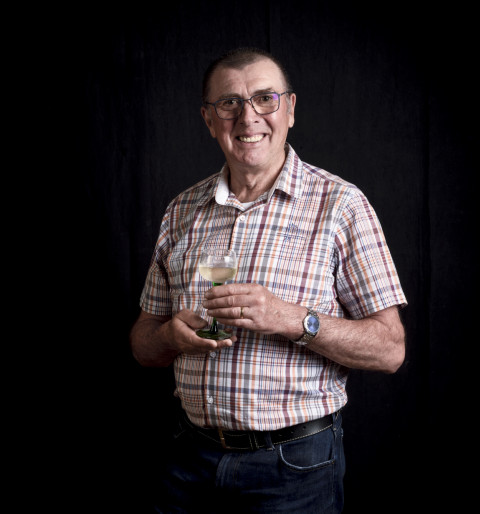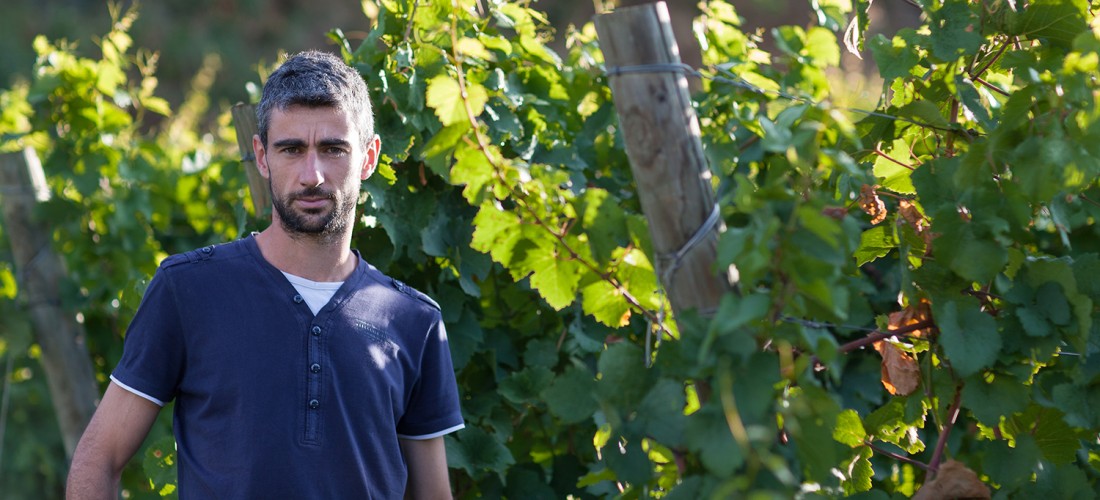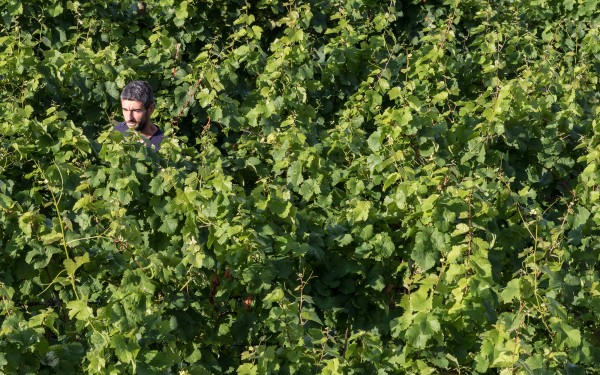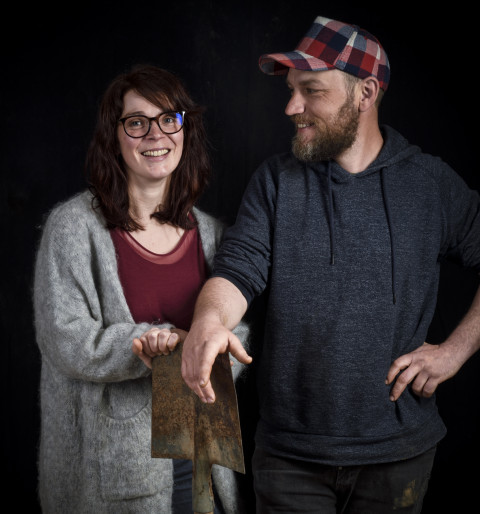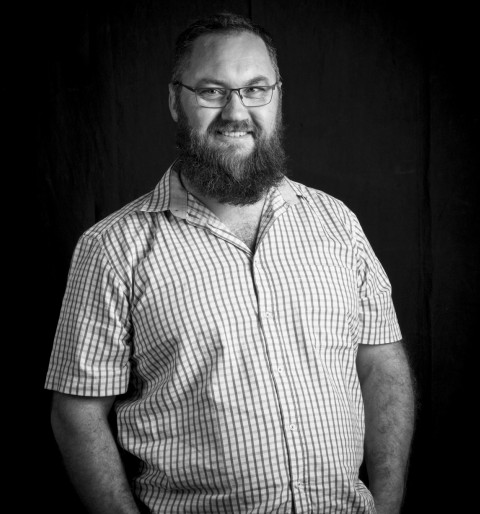
The men and women
The Cooperative Spirit
A COLLECTIVE COMMITMENT BASED UPON PASSION AND SHARED VALUES.
For over 60 years the winemakers of the Cave de Turckheim have built their history with passion and enthusiasm. Today the vintages produced on the sunny slopes of Turckheim and its surroundings enjoy a noble reputation.
In keeping with the spirit of our founders, building upon the heritage handed down to us by our forefathers, it is our responsibility to continue developing a co-operative model for the future.
Passion, solidarity, human commitment, preserving heritage, dynamism and innovation are the pillars of our collective success.
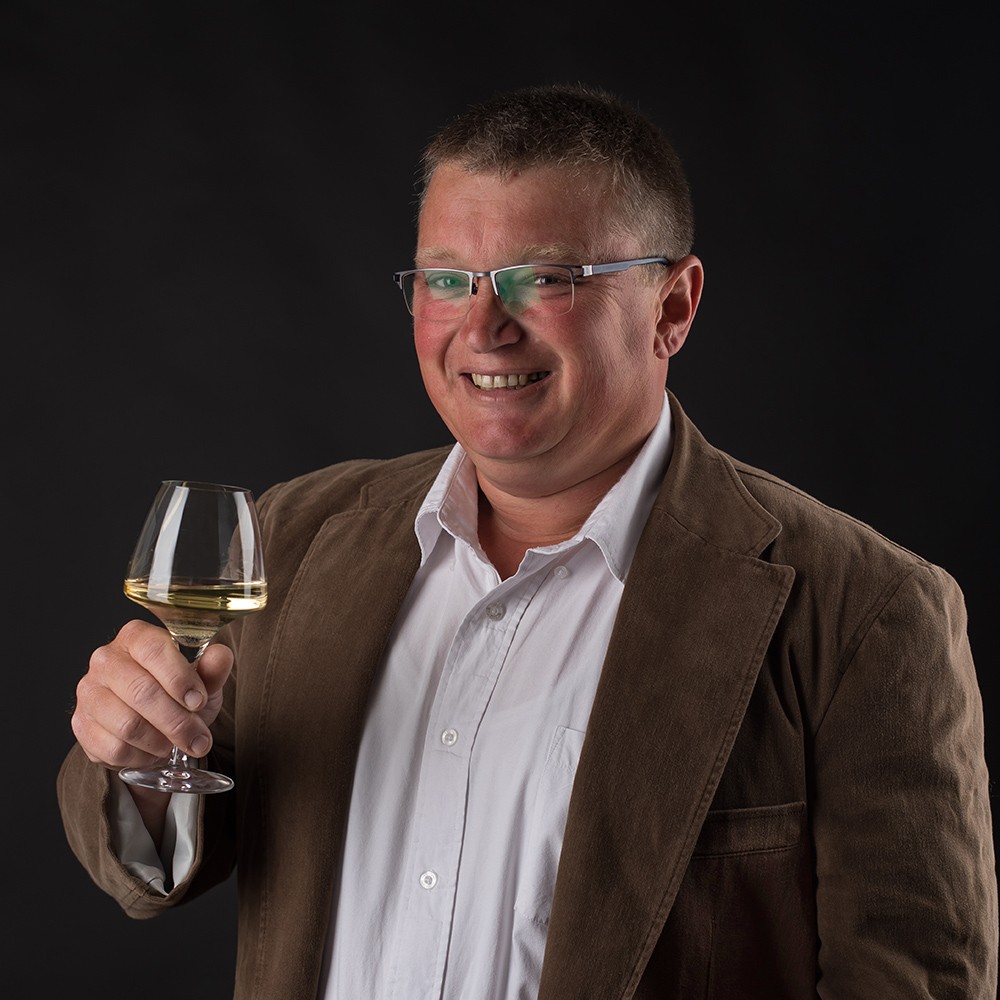
- ...Mathieu and Rémy TannacherA father and son with a passion for vinesMathieu and Rémy TannacherA father and son with a passion for vines
In 1982, driven by his passion, Remy decided to plant his first vine stocks. Passion, perseverance and energy were all required to juggle a full time job with the work of a winemaker! Remy began with a tenth of a hectare and now cultivates almost 4 hectares (about 10 acres) today.
He has passed his love of vines and the terroir on to his son Mathieu. Since 2011 they have been caring for the vines together.
Mathieu also has another job and is employed by a neighbouring winemaker to tend his vines. Mathieu's
- ...ThomasOrganic by convictionThomasOrganic by conviction
Thomas' studies enabled him to pursue his interest in organic winegrowing, providing him with a solid foundation in the techniques of organic viticulture. This young winegrower is proud of his organic vineyard, whose 12 hectares he cultivates assiduously, attentive to the rhythms of the seasons, using natural methods to care for his vines. "In spite of all my doubts at the beginning, the fear of failure and worrying about not being able to stay on top of the weeds and manage disease problems, the passion I feel for working in harmony with nature won through. I've been committed to this approach since 2007 and I'm immensely happy that I took that chance."
- ...BenoîtWines worthy of the name TurckheimBenoîtWines worthy of the name Turckheim
As with many of the greatest vineyards, Turckheim’s development was in part due to the monks of previous centuries who were the true connoisseurs of everything concerning the vine. The monks of Munster Abbey planted the first vine stocks on the granitic soils of Val Saint-Grégoire. The wines of Turckheim have always been considered to be among the best, due to their unique terroir and the exceptionally sunny exposition of the hillsides. The Bishop of Basel confirmed this in 1583, demanding “wines worthy of the name Turckheim”. Documentation dating back to the Middle Ages lays out the rules of grape harvesting, specifying that different lieux dits (named-place vineyard plots) should be harvested according to the maturity of their grapes. A terroir approach was already in existence and we are proud to be its heirs today.
- ...AnneI live my profession with passionAnneI live my profession with passion
Deeply attached to the land and her roots, Anne took over the running of her family vineyard in 2014. The family plot had previously been cultivated by her parents and grandparents. Anne's studies had taken her away from home, but she never remained absent for long, preferring to spend the weekends and summer months serving customers in the wine boutique. She takes part of the Young Winegrowers group: "It's not enough to be a spectator. You need to take an active role in our line of business. I live my profession with passion and it's a very physical job, especially for a woman."
- ...FrançoisA love of terroirsFrançoisA love of terroirs
Great-grandson of one of the pioneers of the Wine Cooperative, François is proud of his strong ties to the terroir and his family’s commitment to the Cooperative since its very beginning. "The notion of terroir is a reality which has been passed down from generation to generation. As with every generation, I've learnt to get to know the terroirs. Turckheim is one of the rare communes to possess the three major geological entities of the Alsatian vineyards: the sand and pebbles of Herrenweg; the granites of Brand and Val Saint-Grégoire; and the marls and limestone of Heimbourg. These terroirs are the riches that permit the vines to flourish. I have the good fortune to cultivate them, due to the generosity of our forefathers who taught us to understand and cherish our terroirs.”
- ...Jean LucBee happy !Jean Luc
“Nature-lover Jean Luc Riegert contributes to biodiversity preservation through his love of our honey-making friends. Beekeepers require training, which gives them an understanding of bee behaviour and provides them with the technical knowledge to take care of the hives and harvest the honey. Although vines are self-pollinating, viticulture and apiculture are not incompatible. Indeed the flowers of most vitis vinifera varieties are hermaphrodite, possessing both male and female reproductive organs.
At the Cave de Turckheim we have 6 beekeeper-winegrowers, two of whom take care of the Cave de Turckheim hive which is situated in a barrel close to our fermenting room.”
- ...Jean-BaptisteJean-Baptiste
Jean Baptiste ensures the close monitoring of the vines and he also provides technical support to the winegrowers. "I produce a weekly plant health bulletin and organise on-site meetings in the vineyards giving winegrowers the opportunity to discuss current issues and exchange information and ideas. I'm also responsible for vine traceability and the selection of vineyard plots for the Pinot Noir, Pinot Gris and Sylvaner grapes, for the Grand Crus and the vines declared late harvest."

